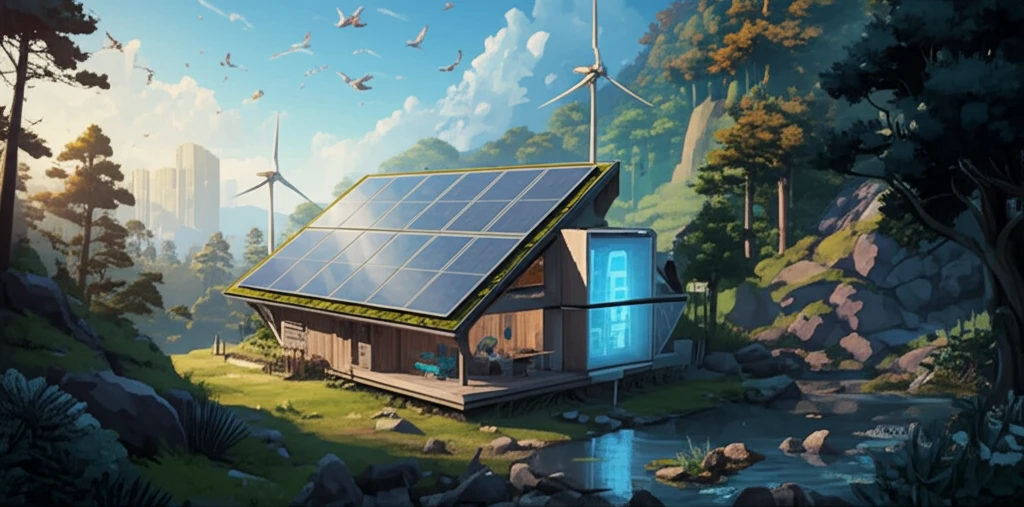
Unlock Sustainable Energy: Are Hybrid Systems the Key to Greener Homes?
"Explore how hybrid renewable energy systems (HRES) are revolutionizing household energy, offering a path to lower emissions and greater energy independence."
The world is increasingly focused on sustainable energy solutions. Rapid industrialization and growing populations have strained traditional power sources. This has led to the rise of decentralized energy planning (DEP), which seeks alternative ways to generate and distribute power, reducing reliance on fossil fuels and large, centralized power plants.
Microgrids (MGs) are central to this shift. Imagine them as building blocks for smart grids, integrating diverse energy resources like solar panels, wind turbines, and energy storage systems. These localized grids allow communities and even individual households to generate, store, and manage their own power, offering a more resilient and eco-friendly energy model.
Hybrid Renewable Energy Systems (HRES) are essential for a greener future, aiming to significantly cut CO2 emissions and boost the use of renewable energy. The effectiveness of these systems hinges on carefully balancing energy demand, power generation, storage capabilities, and overall energy management. This article explores how these systems are transforming homes and helping create a more sustainable energy landscape.
What Are Hybrid Renewable Energy Systems and Why Are They Gaining Popularity?

Hybrid Renewable Energy Systems combine multiple energy sources to provide a reliable power supply. Typically, this includes renewable sources like solar and wind, paired with storage solutions like batteries and, in some cases, fuel cells. The beauty of a hybrid system is its ability to adapt to varying conditions and demands, ensuring a consistent energy flow.
- Reduced Environmental Impact: By prioritizing renewable sources, HRES help lower carbon emissions and reduce dependence on fossil fuels.
- Energy Independence: Generate your own power and reduce reliance on the grid, protecting against price fluctuations and outages.
- Cost Savings: While there's an initial investment, HRES can lower long-term energy costs by harnessing free renewable resources.
- Grid Balancing Support: HRES can support grid stability by providing power during peak demand and storing excess energy.
Embracing a Sustainable Energy Future
Hybrid Renewable Energy Systems represent a significant step towards a more sustainable and resilient energy future. By harnessing the power of diverse renewable resources and optimizing energy management, HRES offer a compelling solution for homeowners and communities looking to reduce their carbon footprint, gain energy independence, and contribute to a healthier planet. As technology advances and costs decrease, HRES are poised to play an increasingly vital role in shaping the future of energy.
